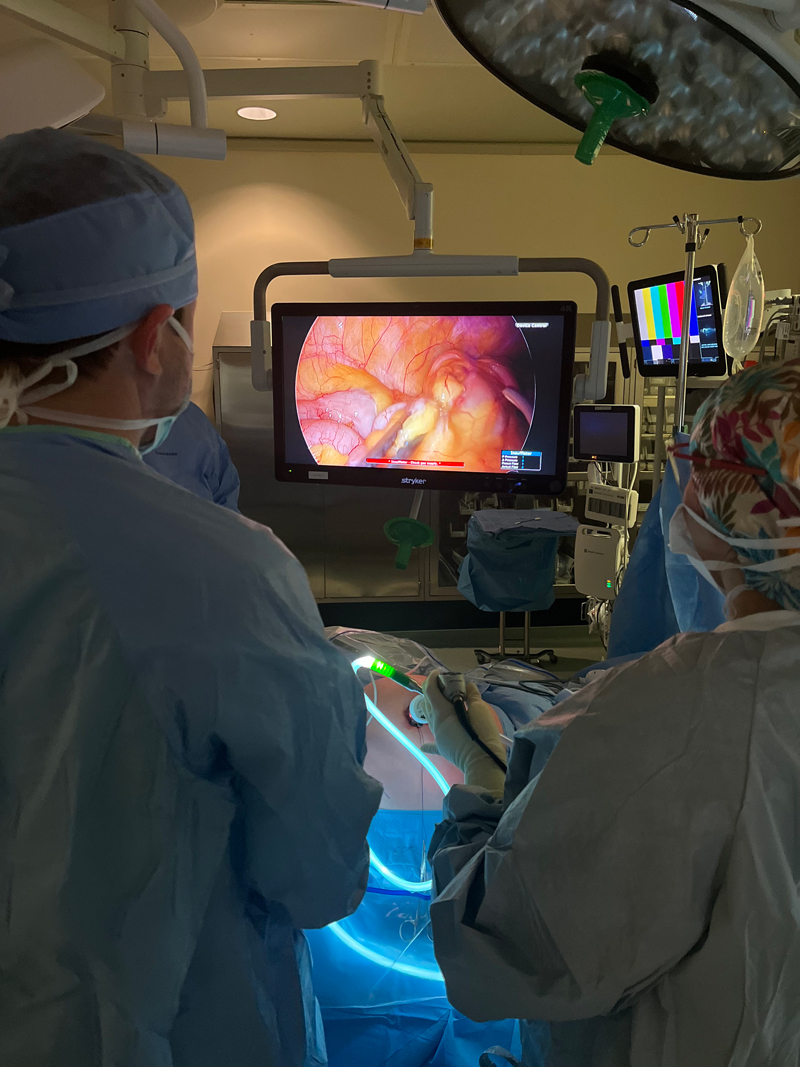Gallbladder
Gallbladder Removal Surgery Jacksonville, FL | Cholecystectomy
Gallbladder Surgeon Dr. Matthew T. Smith
The gallbladder is an organ that lies above our abdomen and helps our body break down foods full of fat. It is one organ in our body that we do not require to live, making gallbladder surgeries less intimidating. Some people experience gallstones, which is a stone that is formed in the gallbladder, that can cause pain and discomfort for patients. Gallbladder pain typically presents as pain in the right upper abdomen after eating a fatty, greasy, or spicy meal. These pains can be sharp or dull and last anywhere from mins to hours. These “flares” are often associated with nausea and vomiting. These symptoms are often an indication to remove the gallbladder.
When Would I Consider Surgery?
If you experience gallstones in the gallbladder, in the bile duct, or inflammation of the gallbladder, you may need to get gallbladder surgery. Additionally, pancreatitis or polyps may require surgery. Some signs your gallbladder may need to be removed include:
- Indigestion
- Heartburn
- Gas
- Pain in, or around, the abdomen
- Nausea
- Vomiting
- Fever
- Jaundice (yellowing of the skin and eyes)
What Can I Expect?
If you need gallbladder surgery, you will have two options for removal. Laparoscopic cholecystectomy is the most common method and is completed by making small cuts into the abdomen. A laparoscope (lighted tube) and a small camera are also used during removal. The incision will then be closed.
The other surgical option is an open cholecystectomy. This typically occurs when the laparoscopic approach can not be accomplished safely. A conversion to an open approach typically occurs in severe cases of acutely inflamed gallbladders or severe cholecystitis. This usually involves a larger incision under the right ribcage.
Recovery from Gallbladder Surgery
Most people require six weeks to fully recover from gallbladder surgery, but the norm is over a long weekend. You will most likely be able to resume normal activities after one or two weeks, although you may have limited energy. You may experience the following during your recovery process:
- Pain in your stomach or shoulders
- Sore throat from the breathing tube
- Skin redness near the incision site
- Bruising
- Nausea and vomiting
- Loose stools
Be mindful of taking it easy during your recovery. Even if you start to feel better, you should be careful not to overdo it. When you feel ready to exercise again, start slowly with short walks. If you notice any pain or discomfort while performing certain activities stop the activity and discuss it with your doctor.
Your doctor will provide more information about proper wound care. However, a general rule of thumb is to avoid soaking in hot tubs or going swimming until your doctor gives the green light to do so.
Call your doctor if you have a fever, your surgical wounds bleed, you have difficulty breathing, or if you experience any other discomfort that you aren’t sure is normal.
Considerations for Gallbladder Surgery

Schedule a Consultation
Discover How Dr. Matthew T. Smith Can Help You with Life-Changing Surgeries
